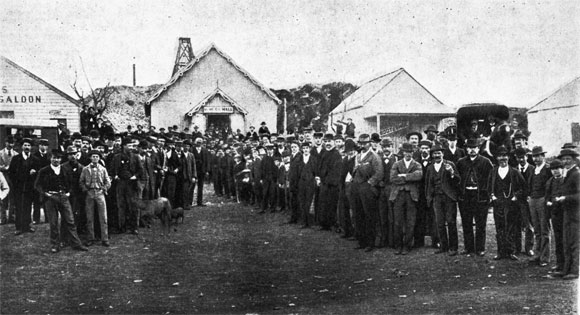The Lucknow Strike
The strike was against the reduction in wages, the new system of grading pays and to protect the miners against ‘the perpetual search warrant’.
There was a lock out by Superintendent Warneford Lock. Up until then, the miners were receiving 7s 6d per day and the truckers were receiving 6s 6d per day. When the miners resumed work, they found that the new pay system had been introduced at a lower rate of pay. First class miners were to receive 7s per day, second class miners 6s 5d per day and truckers 6s 6d per day.
Pilfering of gold occurred on a grand scale at Lucknow. The superintendent, Mr Lock, and management of the Wentworth Proprietary Company were very aware of this problem but were unable to stop it. Because of the theft of gold, miners were required, before leaving the mine each day, to enter the change rooms to be searched. Under the new system they were also required to consent to their house being searched whenever requested by the superintendent.
This did not stop the stealing, so the police commenced patrolling the village by day and night.
The strike lasted 13 weeks during which time many of the miners left Lucknow and moved on to other gold fields. Those who stayed went back to work but more as tributers, doing their own prospecting, and paying the company a commission for the gold found. The Directors in London appeared, on the surface, to think that the strike had been a good thing, as it had introduced a superior stamp of miner and there had been a thorough breakup of the old local gang, thieves and receivers.
